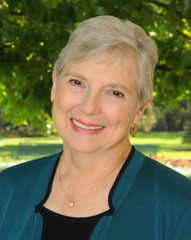In the U.S. and other Western countries, major holidays begin in the fall and carry into the New Year. Halloween, Thanksgiving, Hanukkah, Kwanzaa, Christmas, and New Year celebrations go on for months. Holiday music blares in every store. An air of rushed excitement prevails, commercialism abounds. “Happy Holidays” greetings come through mail and email, phone calls and visits.
But are the holidays happy? For many straight spouses, this time of year brings an eruption of unwanted memories, regrets, and melancholy. What used to be, isn’t. What might have been, didn’t happen. How many possibilities were lost? What plans were dashed? What bitterness lingers? Recurring thoughts like these can plague men and women whose families were fragmented when a spouse came out as gay. Depression is common.
How can we overcome the sadness that accompanies this formerly joyous season? Here are some recommendations from The Mayo Clinic, adapted for the special needs of straight spouses
1. Acknowledge your feelings. The future you’d hoped for has evaporated. You’ve suffered a huge loss and grief is normal. Give yourself time to cry and express your sadness. Be gentle with yourself and don’t force fake cheerfulness.
2. Reach out. Phone a friend when you feel lonely. When you tend to isolate yourself, seek out companionship. Attend religious or social events. Look for ways to help others in need. Volunteer for a worthy cause to meet new friends and renew your sense of purpose.
3. Be realistic. Holidays through the first year after a separation are the most trying, dredging up old memories of family traditions that no longer apply. Clearly, the holidays won’t be perfect or even similar to previous years. Rituals change and we have to create new traditions for a new life. After my divorce, I celebrated my first solo Thanksgiving in Jamaica, drinking rum and eating jerk turkey on a barefoot beach. It was a way to draw a line in the sand—that was then, this is now.
4. Understand that everyone won’t be on your side. After a coming-out event or a divorce, some family members and old friends may feel awkward and even turn against you. Try to accept what you can’t change and give everyone time to adjust to the new reality. Set aside grievances until a more favorable time for discussion.
5. Plan ahead and stay on budget. Decide which of your holiday traditions you’ll continue and set aside specific times to shop and be with friends. Participate in the activities that you really enjoy and eliminate those that evoke bad feelings or painful memories. If gift-giving is part of your tradition, stay on your budget. You can’t buy happiness with piles of gifts.
6. Take a breather. Spend time relaxing alone. Even a few quiet minutes without distraction can reduce stress. If you are a meditator, try taking five-minute breaks spaced through the day. Relax and let go of the chatter in your mind. Nap, or listen to music. Or go for a walk. These moments of peace can change the tenor of the whole day and give you strength to keep going.
7. Learn to say no. Decide which activities feel right and fulfilling to you and say no to all the rest. Forcing yourself into extraneous or unpleasant social situations can leave you feeling resentful and overwhelmed. True friends will understand your absence.
8. Maintain healthy habits. Overindulgence leads to stress and guilt. Have a healthful snack before holiday parties so that you don't overdo sweets, fatty foods, or drinks. Get sufficient sleep and don’t neglect physical exercise.
9. Seek professional help for signs of depression. These symptoms may include persistent sadness or anxiety, unusual physical complaints, insomnia, irritability, and hopelessness. Inability to face routine chores is another red flag. If these feelings last, talk to your doctor or a mental health professional.
Remember that time heals. Regrets soften and wounds close through time. Each successive holiday season can confirm progress on your personal journey.
Holidays are markers of your changing world. It is impossible to recover the past, but a wider future is open to straight spouses. You can reinvent yourself and reconfigure your life. It isn’t easy, but it is certainly possible. John Milton wrote, “The mind is its own place, and in itself can make a heaven of hell, a hell of heaven.” Therein lies the secret of a wholesome future. Change your mind and you can change your life.
A few months after my former husband told me he’s gay, we went shopping together for Christmas gifts for the family. In a small gallery, I stumbled onto a pen and ink drawing by Kathy Wolff. I was captivated by her meticulous image of a graceful tiger, stepping out of the ruins of a root-bound building, one paw firmly on solid ground. Strong and sure, she was emerging, not from a door, but through a window—an unlikely exit. She had escaped, free of confinement, confident and quiet, ready to take the next step.
That tigress changed my way of thinking about my former life and my life to be. I bought the drawing and it has hung over my meditation shrine ever since, calling me to keep walking forward with courage and assurance that the next step will be the right one.
May your holidays be bright with hope and good will.


